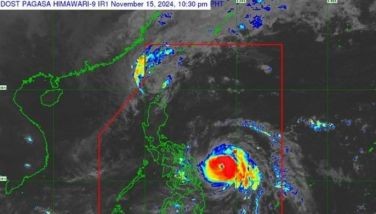Agri sector seeks support amid looming food crisis
CEBU, Philippines — Philippine Chamber of Agriculture and Food Inc. (PCAFI) has urged the government to support the private businesses, especially in agriculture sector, amid the looming "food catastrophe" arising from many global phenomena topped by the Russian invasion that compel food producers to ban exports.
PCAFI President Danilo V. Fausto said the private sector plays a critical role now that the country still lurks with travails from Covid 19.
“Government should provide the right environment and incentives for the private sector to invest, expand their production, value chain and supply chain logistics," said Fausto adding that the government should not kill them with competition from cheap and subsidized imported products.
While the Department of Agriculture (DA) has made importation its pivotal policy to produce food, this is a mere short term solution.
“Providing cheap food for the consumers and fighting inflation through imports is a short term solution. Producing our own food requirements, although a longer process, will be more sustainable for our people," Fausto added.
Russia, Ukraine, India, among others, have already stopped wheat exports while many other countries contemplate to keep their food production for their own security.
As such, Philippines faces food security threats, along with soaring food prices, because of its heavy food import dependence.
According to Fausto, the private sector provides 95 percent of the investments that bring about agriculture production.
In the face of world hunger, he added, the more should agriculture sector get a bigger share in budgetary increase even despite the country's ballooning debt of P12.7 trillion.
“We appeal that food production should not be sacrificed as the Department of Budget and Management undertakes hair-cuts for future budget allocation, he stressed.
Livestock and poultry, contributing a third or 30 percent of agricultural production should get a sizable budget from only 3-4 percent of the DA budget.
With the supply of imported feed wheat now limited, local corn production should be raised. Corn supply is currently at measly 57 percent sufficiency level.
Feed wheat is an alternative to corn which represents 60 percent of feed ingredients. Feed itself represents around 70 percent of cost in growing chickens and pigs.
Cheaper alternative to feed inputs should be tapped as those developed by Filipino scientists from University of the Philippines Los Banos.
Furthermore, he said DA should promote use of inorganic oil-based fertilizers, utilizing organic materials, resulting in equally high yield and efficient production of rice and other crops.
PCAFI expects ratification of the Philippine Livestock Industry Development Act.
It has repeatedly appealed for the establishment of a first border quarantine facility, undertaking food safety measures amid the debilitating African swine flu and fighting smuggling of agriculture products.
All tax revenues derived from imported commodities must be utilized to the same sector where it was generated to help develop the said industry.
If the Regional Comprehensive Economic Partnership (RCEP) is ratified, incentives should be given for export winners to expand jobs creation. More protection should be granted to losing products facing stiffer competition from imports.
“More products have to be supported to expand our variety of agricultural exports to bring in more dollars. We must not suffer the same fate from our painful lessons when we joined the World Trade Organization," said Fausto.
“Appropriate laws were passed by Congress and the Senate. But the implementation of these laws were not done to keep our affected agriculture sub-sectors protected, compared to other countries like Vietnam and Thailand,” he noted.
- Latest






















